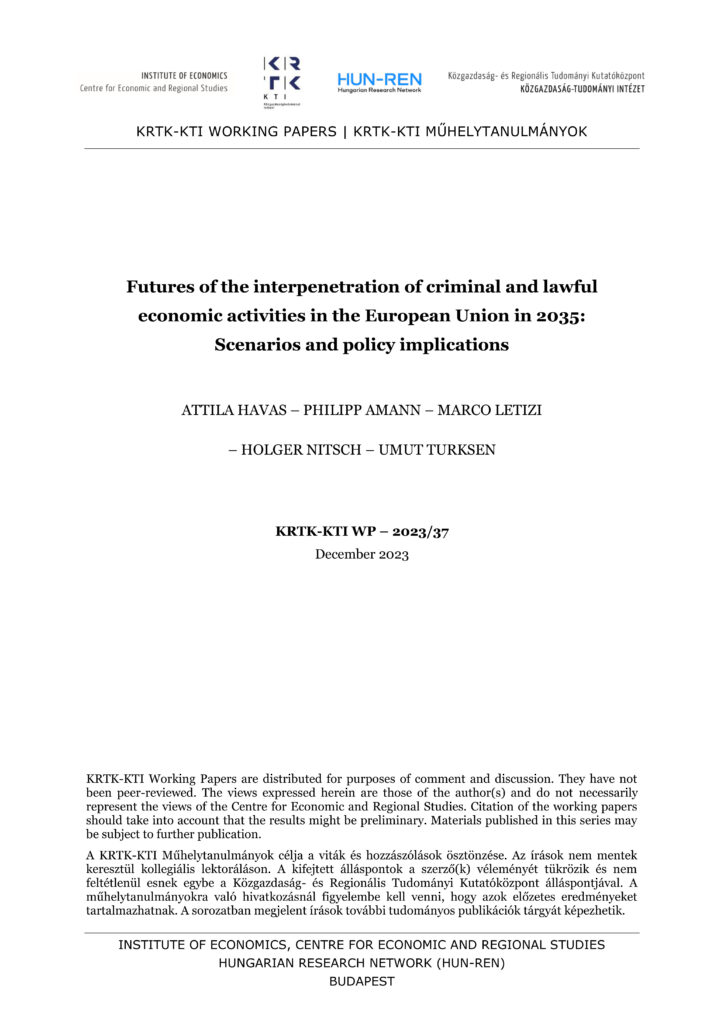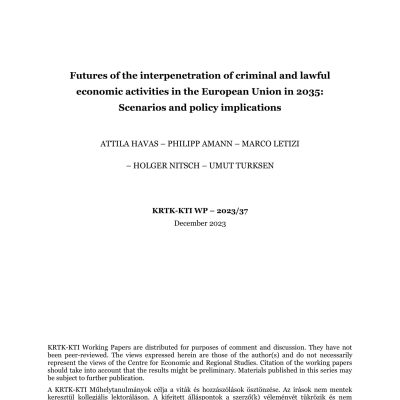Policy-makers – working on various domains, notably regulations, home affairs, security, science, technology, and innovation (STI) policies – need to pay close attention to possible new ways and methods for the interpenetration of criminal and lawful economic activities. This paper is aimed at assisting these policy-makers by presenting four possible futures (scenarios) on the interpenetration of criminal and lawful economic activities and considering their implications.
These scenarios assume that the interpenetration of criminal and lawful economic activities – just as most other types of crime – cannot be fully eradicated. There are two competing groups of actors whose capacities, activities, and efficiency largely determine the possibilities for, and repercussions of, the interpenetration of criminal and lawful economic activities: criminal actors and law enforcement agencies (LEAs). The scenarios, therefore, are shaped by two main dimensions: i) whether LEAs are well-resourced, strong, and effective or not, and ii) whether large criminal organisations or small-scale ones are the dominant criminal actors. Hence, the four scenarios consider various types of ‘push’ and ‘pull’ factors that influence actors to commit – or not – criminal economic activities; the main types of these activities; features of regulations; research, technological development, and innovation activities by the criminal actors vs LEAs; as well as the activities, capabilities, and resources of LEAs.
By considering the nature of the criminal activities that aim at penetrating lawful economic activities, and the options to prevent, monitor, and fight these crimes, the report explores a range of policy implications, especially for STI policies and regulations. Further, it stresses the multi-level nature of policy-making in the EU, as well as the need for collaboration with the willing countries outside the EU. Criminal actors can penetrate lawful economic activities in the EU when commissioned by hostile (‘rogue’) states that aim to weaken and/or undermine the EU and its Member States as part of their geopolitical power games.



